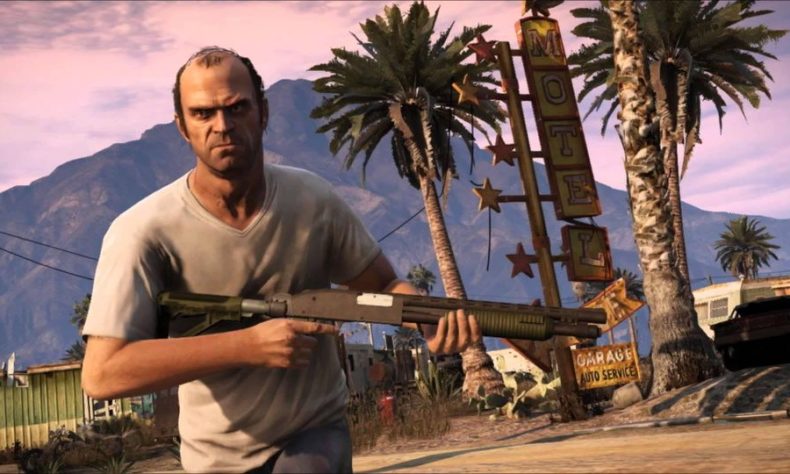
In the aftermath of the El Paso, Texas and Dayton, Ohio shootings , politicians, including Donald Trump, blamed violent video games. Yet, numerous scientific studies have revealed that there is no connection between video games and violent crime.
Texas Lt.-Gov. Dan Patrick said on the Fox Network on Sunday that the video game industry should be regulated, as the El Paso shooting shooter had mentioned the Call of Duty shooter in his game. manifest. We have always had guns, we are still struggling, but I see that the video game industry is teaching young people to kill , said the Texas politician.
Here's Dan Patrick on Fox News previously talking about the Great Replacement theory pic.twitter.com/hBUVbuEUeC
— John Whitehouse (@existentialfish) August 4, 2019
Republican minority House leader Kevin McCarthy followed suit by stating about the attacks: “When you see the pictures of these events, you can see those actions in video games.”
US President Donald Trump spoke on Monday morning on measures to prevent future tragedies. “That includes the macabre and horrible video games that are so common now,” he said.
No link, repeat the experts
Dozens of studies in psychology have examined the link between video games and youth violence. The scientific consensus remains the same:”there is no correlation between the two. It’s really an urban legend, says psychology researcher Christopher J. Ferguson,” from Stetson University in Florida, who has written a book on the subject.
It is very, very clear that there is no evidence that playing violent games or watching violent movies or reading violent books can increase aggression.
Christopher J. Ferguson, Psychology Researcher, Stetson University
In his studies, the researcher tested the level of aggression of participants who had played violent games and non-violent games, and found no difference between the two groups.
Another study by psychologist Richard Ryan at the University of Rochester in 2014 showed that a video game’s level of difficulty can increase a player’s level of frustration, but that violence depicted in the game had no influence. For example, a particularly difficult video game could make participants momentarily more aggressive. However, there is no indication that this may lead players to commit violent acts afterwards.
In an interview with the CBC in 2016, Richard Ryan explained that the fact that some mass murderers played violent video games – as was the case for the author of the 2011 attack in Norway – proves nothing. “Some shooters have been involved in video games, but the majority of young people today also play video games,” Ryan said. “So, if we look at these shootings, I think there are far more important causes that have led these people to take such action. Video games were not the main cause of their violent behavior.”
Researcher Christopher J. Ferguson points out that the rate of violent crime in American society has decreased along with the advent of video games.
There has been an 80% decrease in youth violence in the last 25 years, although the popularity of aggressive video games has increased dramatically.
Christopher J. Ferguson, Psychology Researcher, Stetson University
Fears that go back to the first video games
Since the first video games, more than 40 years ago, fears have been raised about their effect on society.
The Death Race arcade game raised controversy in 1976 (New Window) , despite its rudimentary graphics. In this game, the protagonist had to crush pedestrians driving his car. In the face of criticism, the game’s manufacturer ended up removing it from the shelves.
Then in 1993, the US Congress held hearings on video games like Night Trap and Mortal Kombat , and their potential effects on children. A few years later, it was the Doom shooter that found itself in the hot seat, since the authors of the Columbine massacre in 1999 were followers.
Researcher Christopher J. Ferguson points out that most mass murderers in the United States in recent years were not video game enthusiasts.
In 2002, the US secret service found that school killers played video games less than other men of their age.
Christopher J. Ferguson, Psychology Researcher, Stetson University
And among those who played there, it was not always violent games.
After the shooting at Sandy Hook Elementary School in 2012, Wayne LaPierre, executive vice president of the US National Rifle Association, accused video games of playing a role in the tragedy. Yet, says Christopher J. Ferguson, the game the shooter seemed to spend the most time on was a dance game called Dance Dance Revolution. As for the shooting of Virginia Tech in 2007, its author was a follower of Sonic the Hedgehog, a little violent game.
For Ferguson, politicians’ reproaches evade the real causes of these tragedies.
It is an attempt to distract people not to talk about gun control or social inequality or other issues that politicians are uncomfortable with.
Christopher J. Ferguson, Psychology Researcher, Stetson University
He believes that the criticism of video games comes from the fact that this culture is unfamiliar to the current political class. “Nobody thinks that 1980s rock music is a problem and no one thinks that 1950s comics are a problem. But at the time, people were worried about these things, as we are worried about video games today,” says Ferguson.
Kathy Ottowell is a seasoned journalist with nearly 15 years experience. While studying business at London Business School, Kathy conducted numerous research studies how social media advertising has changed the landscape of traditional PR. As a contributor to Tech Driod, Kathy covers health and science stories.






